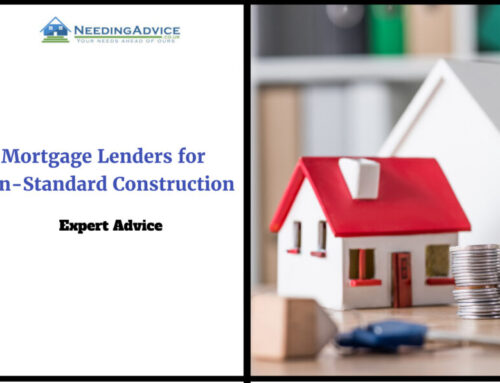As a specialist mortgage broker in the UK, I frequently get asked by potential buyers: “Is a low deposit mortgage a good idea?” The answer isn’t always simple, but I’m here to help you navigate the options available and ensure that you can get onto the property ladder, even with a 5% deposit.
The great news is that today’s mortgage market is more flexible than ever, offering several deposit-based mortgages for those with smaller deposits. Government support, mortgage products, and options like the Mortgage Guarantee Scheme have all contributed to making homeownership accessible to more people.
Key Factors to Consider for Low Deposit Mortgages: Benefits, Drawbacks, and Government Schemes
| Category | Explanation | Benefits | Considerations |
|---|---|---|---|
| Low Deposit Percentage | 5% of the purchase price (e.g., £15,000 for a £300,000 property). | - Easier access for first-time buyers - Smaller upfront cost |
- Higher mortgage rates - Increased risk of negative equityA situation where the value of the property is less than the... |
| Mortgage Guarantee Scheme | A government-backed scheme for 91-95% LTV mortgages with a 5% deposit. | - Makes 95% LTV mortgages more available - Backed until June 2025 |
- Not available for new-build or buy-to-let properties |
| Shared OwnershipA scheme where a borrower purchases a share of a property an... Scheme | Buy a share of a property (25%-75%) and pay rent on the remaining share. | - Lower initial deposit - Easier entry to the property market |
- Rent is payable on unsold shares - Additional costs like stamp dutyA tax paid by the buyer when purchasing a property. |
| Affordability Checks | Lenders assess income, credit rating, and outgoings to ensure affordability. | - Joint income improves affordability - Tailored to overall financial status |
- Credit checks are needed - Higher deposits may be required for bad credit |
| Negative EquityThe difference between the value of the property and the amo... | Occurs when property value falls below the mortgage balance. | - Does not affect monthly payments unless selling or remortgaging | - Difficult to sell or remortgageRefinancing an existing mortgage with a new mortgage. - Higher risk for 95% LTV mortgages |
This information is correct as off Wed, 16 Oct 2024 and refers to products and customers based in the UK
What Exactly Is a Low Deposit Mortgage?
A low deposit mortgage lets you buy a home with a deposit as small as 5% of the purchase price. Let’s say you’re eyeing a home worth £300,000. In this case, you’d only need a mortgage deposit of £15,000, while the remaining £285,000 would be covered by the mortgage. This is particularly appealing to first-time buyers or those with less savings.
Many lenders are now offering 91-95% mortgages, which means they’ll fund up to 95% of the property’s value. The Mortgage Guarantee Scheme, backed by the UK government, provides additional reassurance to lenders, allowing them to approve 5%-deposit mortgages more easily.
How to Qualify for a Low Deposit Mortgage
To qualify for a low deposit mortgage, lenders look at several factors, such as your credit rating, annual income, and ability to manage monthly mortgage payments.
•Credit Checks: Your credit score plays a key role in your mortgage approval. While having a bad credit score or chequered credit history can be challenging, don’t lose hope. There are still options available, such as bespoke mortgages from specialist mortgage brokers. Some lenders may require you to undergo a depth credit score analysis, so it’s essential to check your credit report before applying.
•Joint Mortgage: If you’re buying a home with a partner, applying for a joint mortgage is a great way to combine incomes and improve affordability. This increases your chances of mortgage approval since lenders look at your total household income.
•Employment and Income: Lenders will assess your current income and employment historyA record of a borrower's employment history, which may be us.... The more stable and consistent your earnings, the better. Self-employed buyers might need to provide additional proof, such as tax returns or bank statementsA record of a borrower's financial transactions often requir..., to demonstrate their ability to manage mortgage payments.
Benefits of a Low Deposit Mortgage
1.Easier Access to the Property Market: Low deposit mortgages are perfect for those struggling to save a large deposit. Whether you’re a first-time buyer, key worker, or member of the armed forces, you can get a foot on the property ladder sooner.
2.Support from Government Initiatives: With schemes like Shared Ownership and Mortgage Guarantee Scheme, buyers can secure cheaper mortgage rates and deposit mortgage deals that make homeownership more affordable.
3.Smaller Upfront Costs: With just a 5% deposit required, you don’t need to save for years to afford your dream home. This allows you to put more of your savings toward extra costs such as stamp duty, legal fees, and home improvements.
Drawbacks to Consider
As great as a low deposit mortgage sounds, there are some considerations you should be aware of:
•Higher Interest Rates: Smaller deposits tend to come with higher mortgage rates, leading to more expensive monthly repayments. Variable rate mortgages or tracker mortgages can also fluctuate, increasing costs if interest rates rise.
•Negative Equity Risk: If house prices fall after you’ve bought your property, you could find yourself in negative equity, meaning the home is worth less than the amount you owe on your mortgage. This can complicate things if you want to remortgage or sell the property.
•Repayment Charges: Many low deposit mortgage products come with early repayment charges, so be sure to check the fine print before you commit to a deal.
Government-Backed Schemes
Here are a few government-backed schemes that can help if you have a low deposit:
•Mortgage Guarantee Scheme: Extended until June 2025, this scheme enables buyers to secure 91-95% mortgages by providing lenders with a guarantee for the majority of the loan. This reduces the risk to lenders, making it easier for them to approve loans with smaller deposits .
•Shared Ownership: A Shared Ownership mortgage allows you to buy a share (usually between 25% and 75%) of a home and pay rent on the remaining share. This scheme is ideal if you don’t have a large deposit but want to own a portion of your property .
•Lifetime ISA: If you’re a first-time buyer, you can use a Lifetime ISA (LISA) to save up to £4,000 per year, with a 25% government bonusIncome received as a bonus, which may affect a borrower's ab... on your savings. This bonus can be put toward your house deposit .
Types of Mortgages You Should Consider
•Repayment Mortgages: With this traditional option, you pay off both the loan and interest with each payment. It’s the most common choice for residential mortgages and provides more security over time.
•Interest-Only Mortgages: While these may offer lower monthly repayments upfront, you’ll need to pay off the full loan amount at the end of the mortgage term. These mortgages are less common now, especially for low deposit buyers.
•Fixed-Rate Mortgages: These lock in your interest rate for a set period, giving you stability and peace of mind with consistent monthly mortgage payments.
•Tracker Mortgages: These mortgages follow the Bank of England’s base rateThe interest rate set by the Bank of England, affects the in..., which means your payments can rise or fall depending on changes in interest rates. If rates drop, you could benefit, but if they rise, you’ll need to budget for higher payments.
FAQs About Low Deposit Mortgages
What is the Mortgage Guarantee Scheme?
The Mortgage Guarantee Scheme helps buyers secure a mortgage with a deposit as low as 5%, while reducing the lender’s risk. This allows more lenders to offer competitive mortgage deals on 91-95% mortgages, which are ideal for buyers with smaller deposits .
What is Negative Equity and Why Should I Worry About It?
Negative equity happens when the value of your home falls below the amount you owe on the mortgage. It’s important because it can limit your ability to remortgage or sell the property without making a financial loss .
Can I get a joint mortgage with a low deposit?
Yes, applying for a joint mortgage is a great way to combine joint income, improve affordability, and increase your chances of mortgage approval. Both incomes are considered in affordability checks, which may allow you to borrow more .
What extra costs should I be aware of?
When applying for a mortgage, keep in mind that you’ll also need to budget for application fees, valuation fees, stamp duty, and possibly mortgage protection insurance. These are necessary costs in addition to your mortgage deposit .
Final Thoughts: Is a Low Deposit Mortgage Right for You?
A low deposit mortgage is a great way to get onto the property ladder without saving for years. However, higher mortgage rates and the risk of negative equity are factors you need to consider. Working with a specialist mortgage broker can help you find cheaper mortgage deals and secure the best terms based on your individual circumstances.
If you’re unsure which type of mortgage is right for you, don’t hesitate to seek mortgage advice from an experienced mortgage adviser. With bespoke mortgage options available, there’s bound to be a solution that fits your needs—whether that’s a tracker mortgage, fixed-rate mortgage, or something else.
Let’s find the right mortgage for you and get you one step closer to owning your home.






